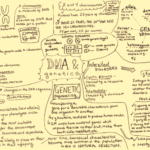With schools closed until February Half Term and continued uncertainty about how GCSE / A Level students will be assessed, we are receiving an unparalleled volume of enquiries from parents seeking help and advice about home schooling support.
To help parents and students through this difficult period, we have prepared a short guide covering:
- Key reasons for GCSE /A Level students to maintain study momentum
- Useful tips and free resources to support home schooling
- How Justin Craig is seeking to help students’ home schooling
Key reasons to maintain study momentum
Earlier this month, Simon Lebus, Ofsted’s interim head, said that evidence for replacement grades could include tests, homework, mock exams and teachers’ observations – and would take into account how much of the syllabus had been covered. “Mini” exams or assessments have also been mentioned by Government but no detail provided. Whilst consultations with teachers and exam boards are underway, it is possible that plans may not be announced until the end of February.
For some students, the cancellation of GCSE and A-level exams will have come as a relief. However, many others are feeling disappointed, de-motivated or anxious about the situation, with some pupils believing that online assessments are harder to monitor and may not reflect their true abilities.
For students studying the IGCSE subjects, exams are still going ahead at the moment, making effective home learning even more important.
If your child has lost their study “mojo”, try reminding them that:
- As teacher assessments are not fixed until May/June, the next 5 – 6 months represent a genuine opportunity for pupils to influence their final assessments and therefore final grades
- Whilst Ofqual’s “alternative” arrangements may involve additional tests or “mini” exams, their contribution towards final teacher assessments is currently unclear. This means that it is more important than ever for students to demonstrate their scholarship in every single subject, every day and at every opportunity, whether that be homework or online class discussion
- Staying on top of their studies during this uncertain period also gives students the best chance of being ready, whatever the outcome on the “alternative” arrangements. If there are to be “mini”exams, students will need time to revise and prepare so we advise continuing to work steadily, learning from any mock results and teacher feedback
- Completing and consolidating the curriculum is also important for the next stage in your child’s education. Education is not just about getting the right grades, it’s also about equipping your child with knowledge and skills for the challenges of their next examinations, or at University.
Useful tips and free resources to support home schooling
Addressing your children’s fears, maintaining healthy routines, utilising and monitoring technology use, staying positive and having open conversations are all ways in which parents can support their children in these turbulent times.
For older children in years 10-13, you don’t have to become a teacher. You are a parent and what your child needs most is what parents give best – love and support. For more practical advice, read our earlier article here.
If you would like to know more about what sort of online support you should be receiving from your school, then the Government has published guidance for parents . If parents have any concerns about their child’s education, the government says they should raise it with a teacher in the first instance. If the matter is still not resolved, parents can contact the schools watchdog, Ofsted.
Free Resources
As many schools already pay for online resources, it’s worth checking which ones you can access, as these will follow the curriculum. For example, about half of UK schools use sites such as MathsWatch, for example, which caters for children from Year 4 up to A-level.
Here are our Top 10 recommendations for free resources:
BBC Bitesize (children age 5 – GCSE)
This is one of the most comprehensive online resources available; it really does have something for everyone. Users can search by age, subject and exam board, and then create their own ‘Bitesize page’ with all of their relevant topics.
Oak National Academy (children age 5 – GCSE)
This is a brand-new enterprise created by 40 teachers from some of the leading schools across England and backed by government grant funding. It will provide 180 video lessons each week, created by teachers, across a broad range of subjects from maths to art to languages.
The Day (children age 6-19)
A free, daily newsletter for parents and students, helping to enrich learning with real-life knowledge and skills. Every issue provides a brief guide to one of the day’s most stimulating debates, with a summary of the news story and the different sides that people are taking, with links to the best journalism available in the world so that, if you’re interested in current affairs, you will always have something to enrich your day.
Seneca (children age 7 to A-Level)
Free online resources for students at all levels, with some emphasis on GCSEs and A Levels, with opportunity to pay to access more. All of the courses have been written by senior examiners and are continually updated, so parents can be assured that the content matches the exam’s specifications (you can also search by particular exam boards).
Ted Ed (children age 14 upwards, GCSE & A-Level)
From the creators of TED Talks, this YouTube channel shares videos on a huge variety of topics ranging from “a day in the life” of different historical periods, real world mathematical problems, classical and contemporary poetry . Whilst the videos are less focused on exam content, they are an excellent way of building up a student’s general knowledge.
In Our Time (GCSE and A-Level Students)
This BBC Radio podcast offers 45 minute-long discussions about a range of historical, philosophical, scientific, literary, cultural and religious topics, and is an ideal way for students to challenge themselves and consolidate their learning.
Gresham Lectures (A-Level students)
These are now available to watch online for free, and are an excellent opportunity for older students to be exposed to university-level discussion. Each lecture is an hour long, and is given by a leading academic or expert in their particular field.
Crash Course (children age 11-19)
This YouTube channel provides educational videos in everything from anatomy, engineering to world history. Ideal for secondary students, it has over 10 million subscribers and provides content that is both informative and engaging.
Pearson (GCSE students)
To help manage the ongoing disruption of COVID-19, and support GCSE teaching and learning, Pearson are offering a series of free on-demand lessons for English, Maths and Science. The lessons are suitable for all awarding bodies and can be viewed on Pearson UK Learning YouTube channel. GCSE English, Maths and Science.
UCL, Institute for Education (Children 5-19)
UCL have compiled a list of free resources for teachers, parents/carers and young people. They have a specific section for secondary school students, including suggestions Business studies, English, Maths, Languages and Religious Education.
How can Justin Craig help?
At Justin Craig, our priority is supporting students through these incredibly challenging and stressful times. As well as our renowned small group tuition and revision courses, students can now choose from our new online options of:
- Saturday School takes place each Saturday morning during term time. With a class size of just four students, these topic-based courses provide additional support throughout the term and are an excellent way to plug any knowledge gaps.
- One to one tuition is delivered by our experienced subject-specialist Justin Craig tutors. This option is ideal for those seeking flexibility, to fit around commitments, and fully personalised targeted support.
- Friends Group Created for students who prefer tuition with their friends or school peers.
Our next scheduled small group online courses will start on Saturday, 13th February and continuing through the February half term.
To find out more, please contact us at [email protected], or call 01727 744340 to speak to a friendly course advisor.








 See More Genuine Reviews
See More Genuine Reviews